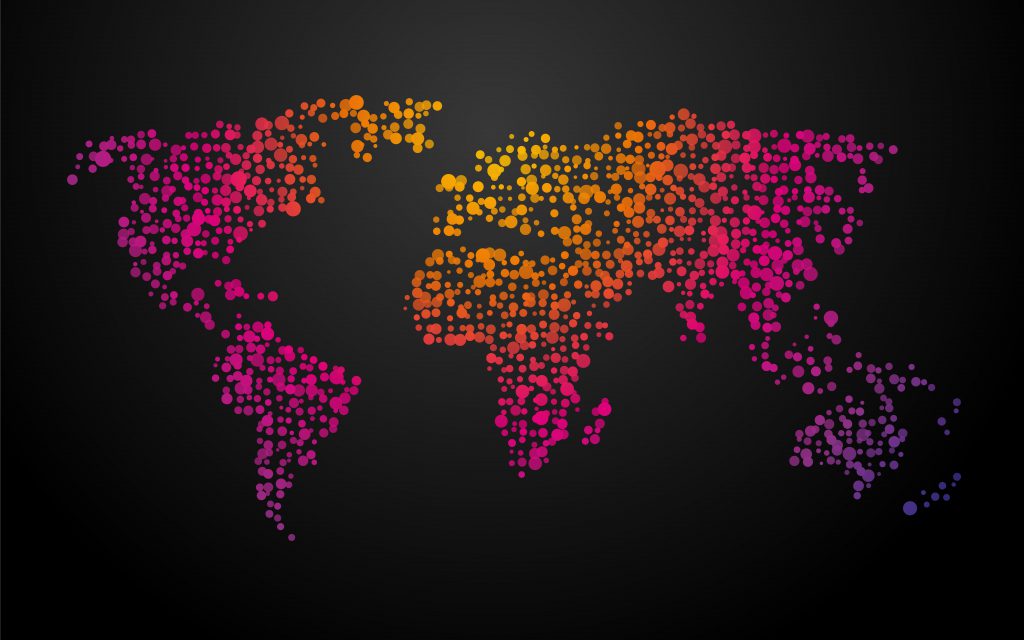Geolocation and Big Data: the road to success
How important is the Big Data and Geolocation pairing in our world today? Far more than you think. Whether travelling by car, plane or on foot, our smartphones or tablets are with us all the time.

The traces of our movements transmitted by these devices are an important data source that will help us reach our destination. They will also help us receive high-quality services in various aspects of our lives: shopping, receiving online orders, procedures with government agencies, the healthcare we receive, etc.
A key player in this process is one of Google’s most widely-used tools: Google Maps, a solution that many of us use very often (more than 1,000 million active users each month) and that easily integrates with third-party applications, websites and other tools in the G Suite ecosystem. In recent years, Google has dedicated major resources to building a global search map:
- Satellite images
- Geological studies
- Local maps
- Third-party surveys
- Cars with Street View technology
Thanks to all these data sources and to its proprietary technology, Google Maps has collected more than 20 petabytes of data. And they are still collecting information to constantly improve their maps and our daily lives.
How do Big Data and Geolocation affect our daily lives?
Businesses have been using geolocation for many years. For example, the users of many banking Apps are aware that these data prevent fraudulent transactions in real time by checking that the customer is in the same place where the transaction is taking place and, if this is not the case, the bank will call the customer to confirm the transaction.
Another field: social media. Our friends record the places they are visiting or where they have been in the past on their social networks. Thanks to this, they can receive suggestions regarding products or establishments, or special discounts and promotions based on their current location or on the expected route they will be taking.
Closely connected with this aspect, Google allows brands and establishments to advertise themselves on Google Maps. Therefore, the users of this tool can locate those outlets easily and this enhances their “top-of-the-mind-awareness”, which greatly facilitates their transformation into digital outputs.
Another two fields that benefit from the interaction between Big Data and Geolocation are Transport and Logistics. Tools, such as Google Maps help reduce product delivery times thanks to suggesting faster routes and the ability to react to traffic incidents (traffic jams, road works, etc.). They also allow businesses to know, at all times, exactly where their delivery vehicles are and correct their routes if new orders are placed in nearby areas. Passenger services (railway, road, sea, or air) can accurately calculate the time of each trip based on the real-time situation of the vehicle and on aspects such as speed, weather, or road incidents.
Haulage companies analyse all this information to optimise delivery processes and improve customer satisfaction by providing a speedy top-quality service. Passenger businesses can optimise travel, thus improving passenger experiences and their level of satisfaction.
Where are Big Data and Geolocation going?
We are seeing how the business world is constantly changing thanks to technology. Let’s consider, for example, a traditional business, such as taxi services, which has changed extensively with the arrival of businesses like Uber and Cabify.
These companies are basing their strong growth and expansion on the Geolocation – Big Data combination: they provide customers with options based on their location and the location of their drivers, and they take into account customers’ preferences regarding the type of vehicle, based on previous services. Thanks to this, they can inform customers when their vehicle will arrive and the driver will know the route that should be used to apply the best fee and to cater for the greatest number of passengers.
A new field that is developing thanks to the combination of Geolocation and Big Data is the driverless car sector. To operate, these vehicles analyse data on the roads on which they are driving and, as they are being permanently geolocalised, they react in real time to changes that affect traffic on the way to their final destination.
Intelligence Partner, as a Google Cloud Premier Partner, can help you to develop a Geolocation strategy based on Google Maps that will provide new avenues of growth for your business. You will be able to make better decisions, improve interactions with your users, and simplify your operations.


